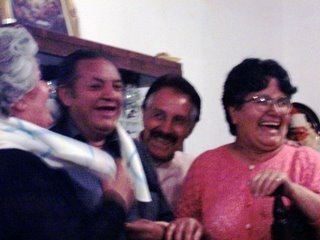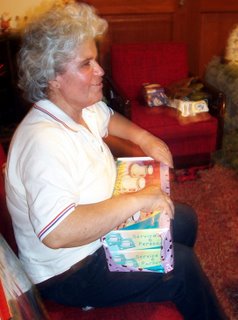Bolivian New Year's tradition?
Yesterday I went with my host sisters and company to the uber-market La Cancha where we all treated each other to brand new underwear. Yellow means money for the year to come, red=excitement, green=hope, white=tranquility, etc.
I bought one black pair and one blue pair with white polka dots -- I don't know what those colors stand for, but didn't ask for fear that it would be depression and doom. After all, they were the only ones I liked.
Cousin Karin asked me what type of traditions I have for the New Year, and I sheepishly responded, "oh, nothing that I can think of", to avoid responding, "well, renting two movies and watching them by myself while wrapped in a blanket".
Tonight there are plans for yet another midnight feast, and I anticipate plenty of knitting to keep myself distracted as I wait -- at least, a bit more action than the usual for me.
I bought one black pair and one blue pair with white polka dots -- I don't know what those colors stand for, but didn't ask for fear that it would be depression and doom. After all, they were the only ones I liked.
Cousin Karin asked me what type of traditions I have for the New Year, and I sheepishly responded, "oh, nothing that I can think of", to avoid responding, "well, renting two movies and watching them by myself while wrapped in a blanket".
Tonight there are plans for yet another midnight feast, and I anticipate plenty of knitting to keep myself distracted as I wait -- at least, a bit more action than the usual for me.









